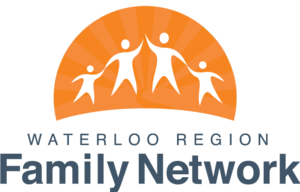
We collect basic website visitor information on this website and store it in cookies. We also utilize Google Analytics to track page view information to assist us in improving our website.
From time to time, the Waterloo Region Family Network (WRFN) is asked to distribute information on behalf of third parties. WRFN provides general information to self-advocates and families of children with special needs. The information provided on this website is not a recommendation, referral or endorsement of any resource, therapeutic method, or service provider. WRFN is not responsible for any information or services provided by third parties. You are urged to use independent judgment when considering any resource.
By Cristina Stanger, Self-Advocacy Liaison WRFN
*This article was originally published in the Family Pulse Newsletter February 2020*
When meeting with clients in my role as Self-Advocacy Liaison, I generally disclose my own diagnoses of exceptionality within the first 15 minutes of an appointment.
With that in mind, it may surprise you to know that I am fairly guarded in sharing my diagnoses in my day-to-day life. With time and practise, I’ve developed a strategy to side-step full disclosure of a formal, medical diagnosis. Instead I describe what accommodations I require, or what exceptionalities I have in a practical sense, without getting too technical. I’ve heard this described as ‘partial disclosure’ by another self-advocate, but I find that term confusing; I prefer to think of my approach as “explaining what I need” on an as-needed basis.
Let me draw a parallel to personal finances. Generally speaking, one does not openly share personal financial information with people outside of one’s inner circle of support (those who do are usually committing a social blunder). Just as I don’t volunteer my personal financial details unless absolutely necessary, I also don’t volunteer my personal medical details any more than necessary either. I consider a diagnostic term to be almost like medical currancy - very valuable and very personal. And in my experience, using a diagnostic term isn’t necessary or helpful in many situations.
The reasons why I think very carefully about full disclosure:
The reasons why I find explaining what I need to be more effective:
With this approach, I only tell others what they need to know, when they need to know it. I don’t have personal experience disclosing on behalf of a child, but I still believe explaining how best to support your child will get you farther on a practical level than focusing on diagnostic terms.
There are times when full disclosure may be appropriate, but even then, it can still be paired with an explanation of need to be most effective. In the case of a medical practitioner, I will disclose my diagnosis and then follow it up with relevant information. For example, at a physiotherapy appointment I might say, “I have xyz, which means I have a high pain tolerance and I have difficulty localizing pain. So I may have trouble answering some of your questions.” I try not to assume a medical professional will be adequately or accurately informed about my particular conditions; it is not humanly possible for them to be up to date on everything. Taking the initiative to explain the relevance of my medical diagnosis within a certain context becomes a form of self-advocacy.
As always, this is my personal philosophy. Every person and situation is different, and as such, may require a different approach to disclosure. Whatever you choose to do when it comes to disclosure of exceptionality, whether for yourself or a family member, please use your best judgement and make that choice thoughtfully.
If you or your family members would like to discuss this, or any other topic, please reach out to Cristina through the Ask A Self-Advocate program (AASA). As with all WRFN programming, the AASA program is provided at no charge.